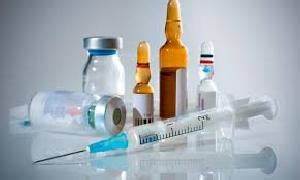In the quest for effective weight loss methods HCG Injections many individuals explore various strategies, including dietary supplements, exercise regimens, and even prescription medications. Among these options, Human Chorionic Gonadotropin (HCG) injections have gained attention for their purported ability to facilitate rapid weight loss. However, before embarking on any weight loss journey, it's essential to understand the science behind HCG injections, their potential benefits and risks, and whether they truly offer a viable solution for shedding excess pounds.
### Understanding HCG and its Role in Weight Loss
HCG is a hormone naturally produced by the placenta during pregnancy. Its primary function is to support the development of the fetus by ensuring a stable supply of nutrients from the mother's body. In the context of weight loss, proponents of HCG injections claim that the hormone can promote fat loss while preserving muscle mass, leading to significant reductions in body weight.
### The HCG Diet Protocol
The HCG diet typically involves a combination of daily injections of HCG hormone and a very low-calorie diet (VLCD), typically ranging from 500 to 800 calories per day. The idea behind this protocol is that the HCG injections purportedly suppress appetite and facilitate fat metabolism, allowing individuals to sustain such a low-calorie intake without experiencing hunger or fatigue.
### Examining the Evidence
Despite its popularity, the scientific evidence supporting the efficacy of HCG injections for weight loss is limited and controversial. While some small-scale studies have reported modest weight loss among participants following the HCG diet protocol, many experts attribute these outcomes primarily to the extreme caloric restriction rather than the hormone itself.
Furthermore, several well-designed studies have failed to demonstrate any significant difference in weight loss between individuals receiving HCG injections and those receiving a placebo. These findings suggest that any weight loss observed in HCG-treated groups may be attributable to the placebo effect or other factors unrelated to the hormone.

### Potential Risks and Side Effects
In addition to the lack of compelling evidence supporting its efficacy, the HCG diet carries potential risks and side effects. Severe caloric restriction, as advocated in this diet plan, can lead to nutritional deficiencies, muscle loss, fatigue, and metabolic slowdown. Moreover, injecting HCG hormone may cause adverse reactions at the injection site, such as pain, swelling, or irritation.
Furthermore, the use of HCG injections for weight loss is not approved by regulatory agencies like the U.S. Food and Drug Administration (FDA). Without proper oversight, individuals who administer HCG injections may be at risk of receiving contaminated or counterfeit products, potentially exposing them to additional health hazards.
### The Importance of Sustainable Weight Loss Strategies
While rapid weight loss may be appealing, especially for individuals struggling with obesity, it's crucial to prioritize approaches that are safe, sustainable, and supported by scientific evidence. Crash diets and quick-fix solutions often yield short-term results at best, with many individuals regaining the lost weight once they revert to their normal eating habits.
Instead of relying on HCG injections or other fad diets, experts recommend adopting a balanced approach to weight loss that includes:
1. **Healthy Eating Habits:** Focus on consuming a variety of nutrient-dense foods, including fruits, vegetables, lean proteins, and whole grains. Portion control and mindful eating can also help manage calorie intake without resorting to extreme measures.
2. **Regular Physical Activity:** Incorporating regular exercise into your routine can not only aid in weight loss but also improve overall health and well-being. Aim for a combination of cardiovascular exercise, strength training, and flexibility exercises for optimal results.
3. **Behavioral Modifications:** Addressing underlying behaviors and habits that contribute to overeating or sedentary lifestyles is essential for long-term success. Strategies such as setting realistic goals, keeping track of food intake, and seeking support from friends, family, or a healthcare professional can make a significant difference.
4. **Professional Guidance:** Consulting with a qualified healthcare provider or registered dietitian can provide personalized recommendations and support tailored to your individual needs and circumstances.
### Conclusion
While HCG injections may continue to garner attention as a purported solution for rapid weight loss, the scientific evidence supporting their efficacy remains inconclusive. Moreover, the potential risks and side effects associated with this approach underscore the importance of prioritizing safe and sustainable strategies for achieving and maintaining a healthy weight.
Rather than seeking quick fixes or miracle cures, individuals interested in losing weight should focus on adopting a balanced lifestyle that includes healthy eating habits, regular physical activity, and ongoing support from healthcare professionals. By making gradual, sustainable changes, you can achieve your weight loss goals while safeguarding your long-term health and well-being.


No comments yet